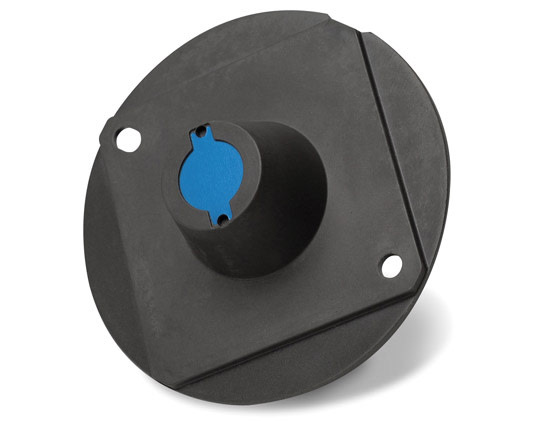 SABIC innovative plastics’ specialty materials help medical device makers stay ahead of healthcare trends in safety, home care and regulation.
SABIC innovative plastics’ specialty materials help medical device makers stay ahead of healthcare trends in safety, home care and regulation.Increasing regulation, stronger emphasis on patient/provider safety and the shift to cost-effective alternative care delivery are among the top healthcare priorities. At MD&M West 2011, SABIC Innovative Plastics showcased specialty materials that help medical device manufacturers respond proactively to these trends. The company’s specialty compounds provide fresh approaches to regulatory compliance and the surge in wireless monitoring devices for convenient, less-expensive home and outpatient care. SABIC Innovative Plastics is firmly committed to the medical device industry and is making continuous investments in technologies that help customers meet current and future healthcare challenges.
On the regulatory front, SABIC Innovative Plastics’ LNP* Thermocomp* high specific gravity (HSG) compounds for radiation shielding address upcoming changes to the lead replacement exemption for Category 8 products under the European Union’s (EU) Restriction of Hazardous Substances (RoHS) directive. In alternative care delivery, the company’s LNP Faradex* compounds integrate protection against interference from wireless patient monitoring systems increasingly used in the home or long-term care facility.

“The healthcare industry is in a period of dramatic change due to urgent calls for quality improvements and cost reduction,” said Thomas O’Brien, Global Product Marketing Director, Healthcare, SABIC Innovative Plastics. “Medical device manufacturers are right in the middle of this process and are looking for answers from suppliers – including new ways to design and manufacture to achieve the highest quality, meet new regulatory requirements, support new care approaches and drive down costs. Our broad portfolio of specialty thermoplastic compounds helps device makers stay ahead of impending government action and meet new benchmarks for quality and safety.”
When the RoHS directive went into effect in 2006, medical devices (Category 8) were given a temporary exemption from lead restrictions due primarily to the lack of suitable replacements. However, this exemption is expected to expire as early as 2012. Meanwhile, China is intending to mirror the EU directive in its own regulation, and may echo enforcement measures adopted by the EU.
LNP Thermocomp HSG compounds from SABIC Innovative Plastics utilize metallic fillers in a resin matrix to create HSG compounds that effectively block radiation, and avoid “hot spots” that can occur with lead shielding. LNP Thermocomp HSG compounds offer the potential for cost-effective, high-volume production, as well as greater design flexibility for new equipment configurations. Avoiding the secondary operations required with lead and gaining the freedom to consolidate multiple parts can reduce total manufacturing time, system cost and complexity. These benefits of LNP Thermocomp HSG compounds can compensate for the low cost of lead.
Remote health monitoring has been gaining momentum for several reasons: greater involvement by patients in their own care; more timely information for physicians to guide disease management; and cost reduction through shorter inpatient stays and less-frequent office visits. However, with more wireless devices transmitting signals from the patient’s home to the doctor’s office or the hospital, interference is a growing issue.
LNP Faradex compounds utilize electrically conductive stainless steel fibers in a resin matrix to provide excellent electromagnetic interference/radio frequency interference (EMI/RFI) shielding. Compared to heavy, hard-to-design die-cast metal layers or part metallization that involves secondary operations and hazardous processes, LNP Faradex compounds offer key advantages. These include design flexibility with available custom color, avoidance of costly secondary operations, reduction in cycle times through efficient injection molding and lower weight than cast metal.
SABIC Innovative Plastics offers a proactive healthcare product policy that covers more than 50 medical-grade materials and provides regulatory listings and pre-assessed biocompatibility to save manufacturers time and expense when developing a new product. SABIC Innovative Plastics offers one of the broadest portfolios of amorphous and crystalline materials for the healthcare industry. Materials included under the SABIC Innovative Plastics’ policy are covered by a United States Federal Drug Administration (FDA) Drug or Device Master File and are subject to formula lock and a stringent change management process. Complementing its portfolio and healthcare policy, the company delivers knowledge and expertise that underscore its ongoing commitment to the market. SABIC Innovative Plastics continues to invest in and expand its portfolio of high-performance products to meet the latest requirements and stay ahead of important regulatory, scientific and consumer trends.



